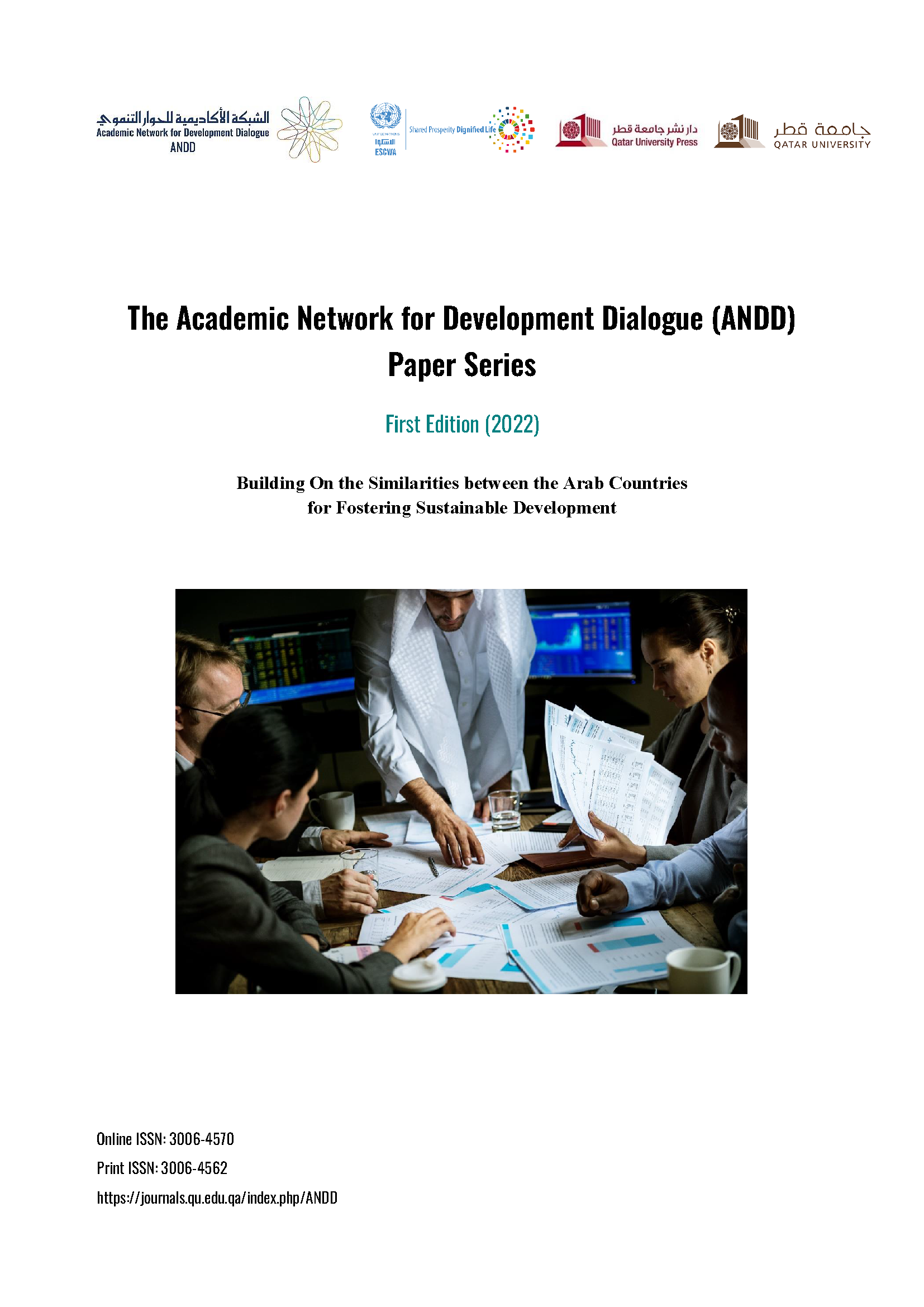Tackling Youth Unemployment in GCC Region: Reaching Beyond National Barriers*
Abstract
This study delves into the multifaceted issue of youth unemployment in the countries of the Gulf Cooperation Council (GCC), where it is nearly twice as high as the average unemployment rate in the region. Given that, a significant proportion of the population in these countries comprises of youth; this problem poses a significant obstacle to the development of a knowledge-based economy. Furthermore, the lack of youth participation in the labor market has become a pressing issue, thwarting national and United Nations’ sustainable development goals (SDG) related to decent work which strives to ensure workers are getting fair treatment and pay. The study reveals that youth in the GCC are underutilized, with they being five times more likely to be unemployed compared to adults. The problem is particularly acute among females. This paper outlines the limitations of nationalization policies aimed at increasing youth labor participation and provides policy recommendations that take into account the diverse perspectives of different stakeholders and the varying situations in different countries.
##plugins.themes.bootstrap3.article.details##
Youth unemploymentGCCPolicy makingKnowledge-based economy
• Elbanna, S., & Fatima, T. (2022). Quantifying people in the GCC region: the uses, challenges, and efficacy of the quota system policy. Human Resource Development International, 1-25.
• Elsharnouby, T. H., Younis, H., Elbanna, S., & Mauji, N. (2022). Voicing perceptions of local job seekers and employees toward workforce nationalization and employment. Employee Relations: The International Journal, 45(3), 615-636.
• Kabbani, N. (2019). Youth Employment in the Middle East and North Africa: Revisiting and Reframing the Challenge. Retrieved from https://www.brookings.edu/wp content/uploads/2019/02/Youth_Unemployment_MENA_English_Web.pdf
• Mina, W. (2021). Youth Unemployment and Productivity-Pay in the GCC Countries. In M. Ibrahim (Ed.), Macroeconomic Analysis for Economic Growth.
• United Nations. (2020). Policy Brief: The Impact of COVID-19 on the Arab Region: An Opportunity to Build Back Better. Retrieved from https://unsdg.un.org/sites/default/files/2020 07/sg_policy_brief_covid 19_and_arab_states_english_version_july_2020.pdf
• United Nations. (2021). System-Wide Annual Results Report for the Arab Region. Retrieved from: https://unsdg.un.org/sites/default/files/2021 05/System%20Wide%20Annual%20Results%20Report%20for%20the%20Arab%20Regi on%202020.pdf
• World Economic Forum. (2014). Rethinking Arab employment: A systemic approach for resource-endowed economies. Retrieved from https://www3.weforum.org/docs/WEF_MENA14_RethinkingArabEmployment.pdf


